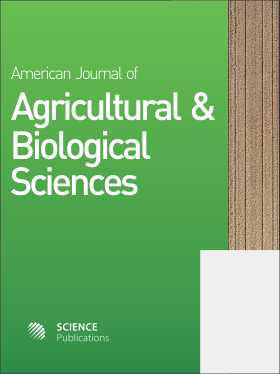Host Plant-Induced Susceptibility of Two-Spotted Spider Mite Tetranychus urticae (Acari: Tetranychidae) to Some Reduced-Risk Acaricides
- 1 Department of Entomology, Bangladesh Agricultural University, Mymensingh, Bangladesh
Abstract
The two-spotted spider mite Tetranychus urticae (Acari: Tetranychidae) is a cosmopolitan pest of a large number of host plants having extensive damage potential and the terrific ability of pesticide resistance. In the present study, spider mite population were reared continuously on the leaves of three susceptible host plants namely country bean (Phaseolus vulgaris L), papaya (Carica papaya L) and jute (Corchorus olitorius L) and their susceptibility to some reduced-risk acaricides were determined by leaf disc bioassay method. Abamectin was found to be the most toxic acaricide (LC50 values were 0.432, 0.342 and 0.324 mg L-1 on the country bean, papaya and jute leaf discs respectively at 24 h after treatment application) which was followed by azadirachtin, emamectin benzoate, spinosad and hexythiazox respectively. For all the tested acaricides, toxicity increased proportionately with increasing time duration after treatment application. Moreover, spider mites reared on country bean leaves were comparatively less susceptible to all acaricides followed by mites reared on papaya and jute leaves respectively. Based on the present study, it might be inferred that host plants play a considerable role in the susceptibility of spider mites to acaricides and abamectin could be used as a puissant chemical for controlling spider mites.
DOI: https://doi.org/10.3844/ajabssp.2019.11.15

- 7,612 Views
- 5,478 Downloads
- 8 Citations
Download
Keywords
- Host Plants
- Toxicity
- Bioassay
- Tetranychus urticae
- Acaricides
